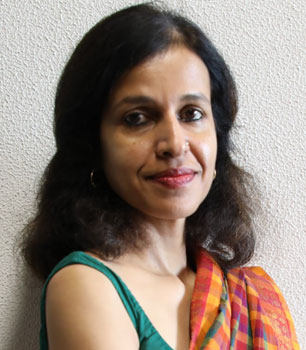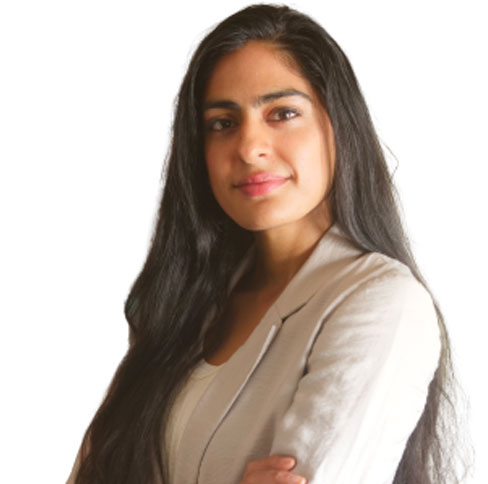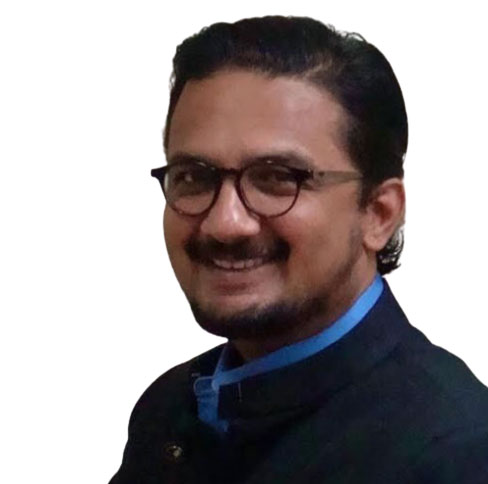Ashoka-Environmental Defense Fund Climate Corps Blogs
Behind the Loops: People Who Keep Sustainability Alive
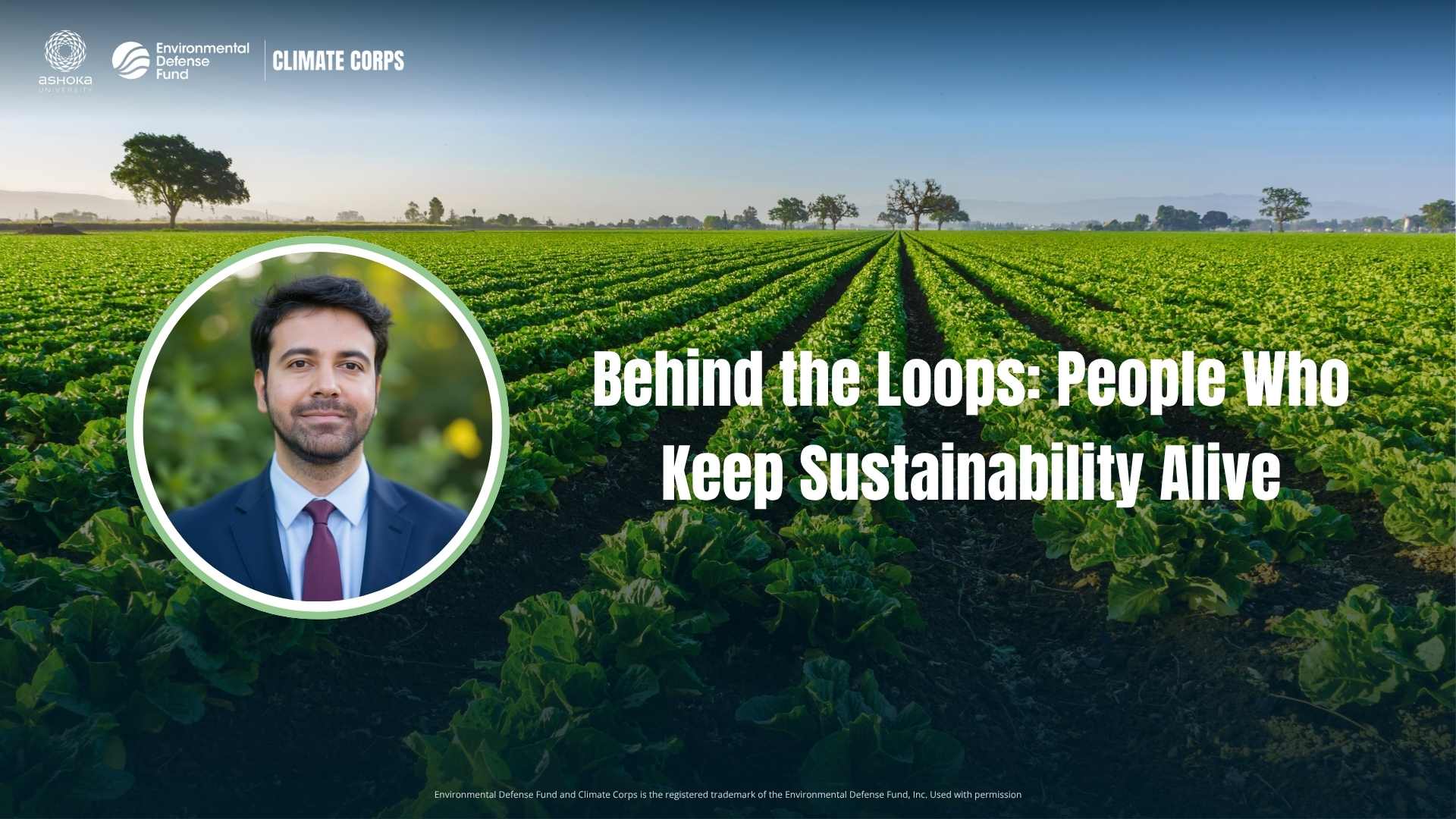
Every morning, there was a fine, restless spirit of burnt coal in the air—fly ash, captured imperfectly by power plants before it could drift into the atmosphere. Yet much of it still escaped, sifting into our village, settling on crops, and coating the leaves in a dull grey film. For families like mine, it was a constant worry, a reminder of how energy and environment collide on the most ordinary farmlands.
As schoolchildren, my friends and I studied this for the National Children’s Science Congress. We found that the ash residue blocked photosynthesis when it layered over leaves, but in small doses, it could enrich the soil with micronutrients. Our project was shortlisted for national-level presentations, but for me, the real takeaway was different: that sustainability cannot be abstract. It touches the ground, the plants, and the lives that depend on them.
Those early experiences stayed with me. The idea of a circular economy always made intuitive sense to me, and during my M.Tech in Sustainable Engineering at IIT Hyderabad, that instinct finally found structure. But I wanted to move beyond classrooms and labs, to see how sustainability actually works on the ground.
That’s when I heard about the Ashoka-Environmental Defense Fund Climate Corps Fellowship from my seniors. The promise of hands-on exposure—backed by a competitive stipend—drew me in. I assumed it would be just another internship: some meetings, a field visit, and a final report. What I didn’t expect was the rigor of trainings, webinars, check-ins, and reflections that made the experience far more demanding—and rewarding.
My motivation, though, was deeply personal. Years ago, fly ash from a nearby thermal power plant drifted over my family’s farmland and ruined our crops. That moment showed me how environmental negligence could devastate lives. Since then, I’ve believed sustainability must be practical, ground-aware, and people-first—not just a checklist or slide deck.
Beyond Reporting: Turning Data and Culture Into Action
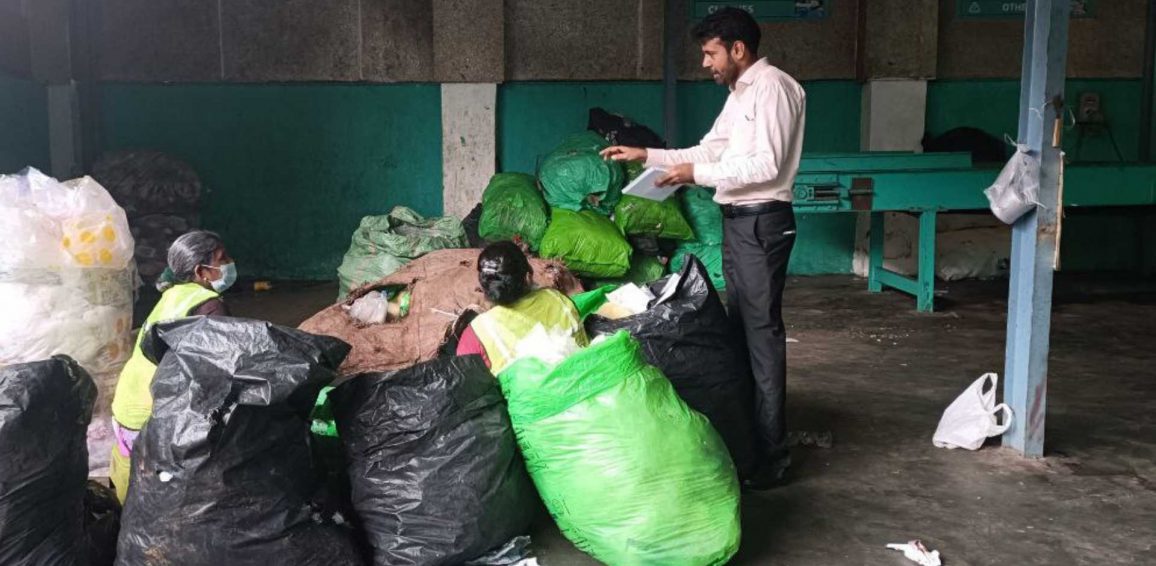
This summer, I worked with Dalmia Polypro Industries (DPIPL), one of India’s largest PET recyclers, to streamline Material Recovery Facility (MRF) operations in Mumbai. The goal was to improve traceability and compliance in post-consumer PET sourcing—critical under tightening Extended Producer Responsibility (EPR) rules and ESG demands from global clients.
On paper, the project looked technical. In reality, it revealed how waste management is more human than mechanical.
I assessed three MRFs, identified infrastructure and documentation gaps, drafted SOPs, developed a traceability-linked business model, and modelled financial viability with Internal Rate of Return (IRR) and break-even estimates. But the real challenge was translating tidy frameworks into the chaos of day-to-day operations.
Batch-wise weighing, QR-tagged bales, traceability dashboards—great in theory, but hard to implement when workers sorting waste in harsh conditions have neither the time nor the incentive to maintain digital logs.
And behind this are systemic cracks: informal players dominate the value chain, municipal and brand support is inconsistent, and the sector still suffers cultural neglect.
What stayed with me were the faces and stories of those who keep this fragile system running:
- A 55-year-old woman who migrated from Tamil Nadu as a teenager and still sorts waste daily.
- A mimicry artist who once dreamt of sound engineering but now manages a waste site.
- An operations manager who turned away from biotech research because “someone has to fix it.”
- A second-standard pass informal aggregator handling a ₹20-crore turnover while speaking fluent English.
They don’t appear in ESG reports, but they are the backbone of the sector.
Impact That Doesn’t Fit in Spreadsheets
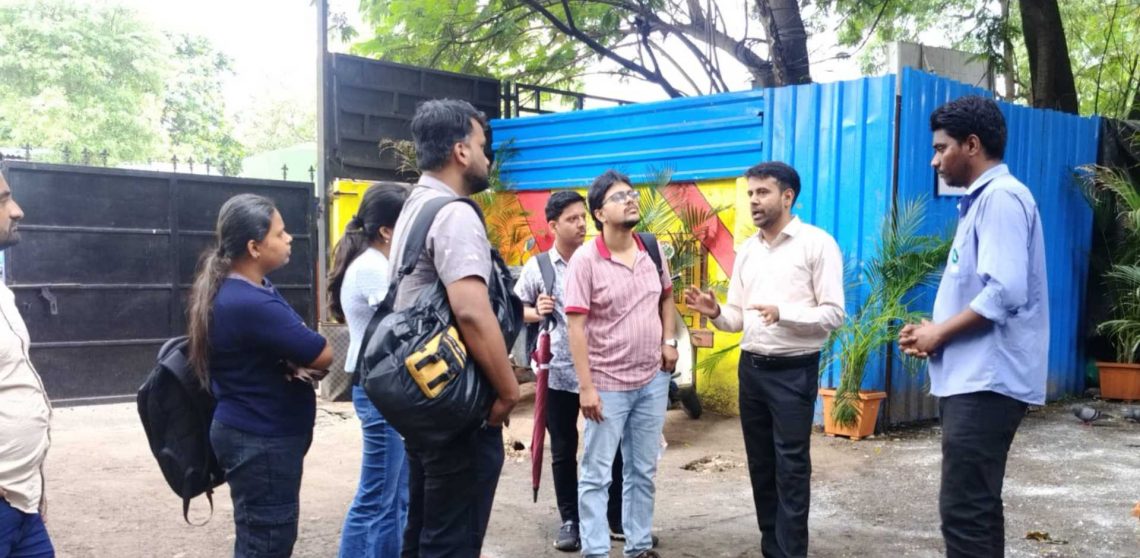
My project didn’t generate kilowatt-hour savings or carbon offsets. What it produced was less visible but no less vital: a playbook for traceable, scalable, and humane plastic recovery operations. If implemented, the SOPs and business model could reduce PET procurement costs, expand DPIPL’s MRF network, and align operations more closely with ESG commitments.
For me, the bigger impact was in perspective. I learned that sustainability isn’t about superhero fixes. It’s about aligning policies, behaviours, and technologies that move at different speeds. It takes patience, iteration, and collaboration.
And perhaps the most important lesson: real impact is messy and people-driven. It doesn’t look like dashboards, reports, or social-media campaigns. It’s built quietly on the ground.
What I’d Tell Future Fellows
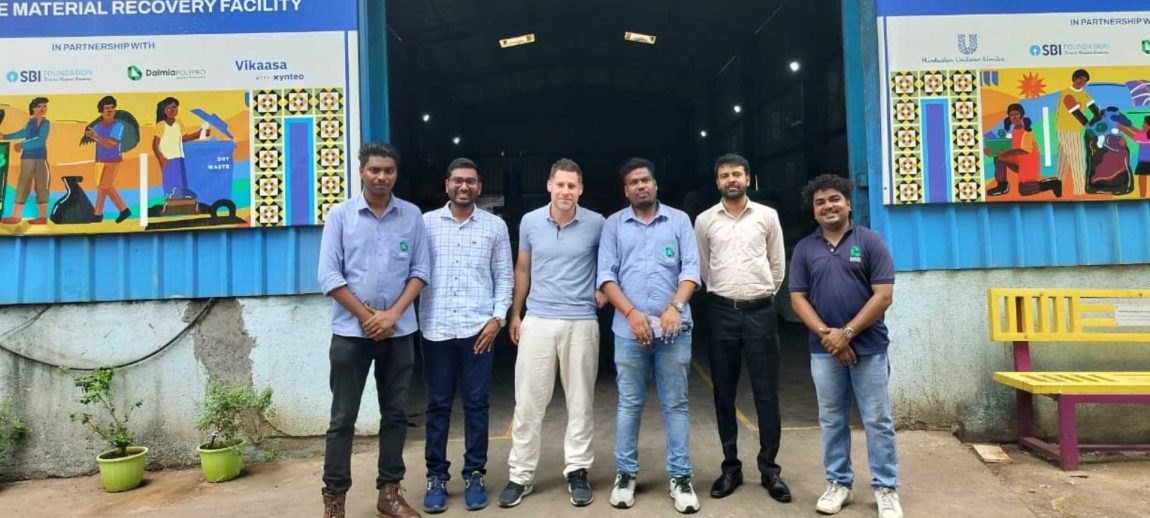
If you enter this fellowship, go in with curiosity and humility. Don’t let frameworks or optics blind you. The most valuable lessons won’t come from templates—they’ll come from the people you meet, the ones who keep waste systems functioning against the odds.
Because sustainability isn’t just about closing loops in systems. It’s about recognising and learning from the people who keep those loops alive every single day.
Written By: Sumedh Ayachit, Ashoka-Environmental Defense Fund Climate Corps Fellow
Edited by: Zoya Hussain



